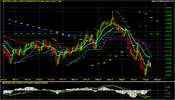- Joined
- 20 July 2021
- Posts
- 11,285
- Reactions
- 15,660
am unfamiliar with either term , in regard to share trading
so far i am just an investor learning as i go ( in uncharted waters )
so far i am just an investor learning as i go ( in uncharted waters )



